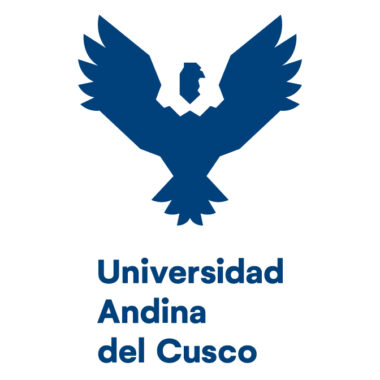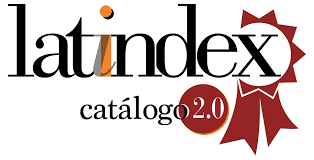Intercultural competence development in English teachers in China: A case study
DOI:
https://doi.org/10.36881/yachay.v13i2.944Keywords:
Intercultural competence, language teaching, teacher educationAbstract
The present study highlights the need to develop Intercultural Competence (IC) as a fundamental tool for English as a Foreign language (EFL) teachers in an ever-evolving globalized context. This study focuses particularly on those educators who move to a different cultural environment and have to adapt to new socio-cultural realities. The case study analyzes the experiences of an EFL teacher originally from northern Mexico who moved to China to advance her professional career. The purpose of the qualitative research was to explore the experiences and perceptions of EFL teachers who have taught in China. The theoretical framework of this research is based on the concepts of IC and transformative learning. The results obtained suggest that IC not only facilitates adaptation to informational changes, but also contributes significantly to coping with the rapid transformation of teachers' and students' roles in contemporary educational contexts.
Downloads
References
Ang, S., & Van Dyne, L. (2008). Conceptualization of cultural intelligence: definition, distinctiveness, and nomological network. En S. Ang & L. Van Dyne (Eds.), Handbook of cultural intelligence: Theory, measurement, and applications (pp. 3-15). M. E. Sharpe.
Bertelsmann Stiftung & Fondazione Cariplo. (2008). Intercultural competence: The key competence in the 21st century? https://www.bertelsmann-stiftung.de/fileadmin/files/BSt/Presse/imported/downloads/xcms_bst_dms_30238_30239_2.pdf
Block, D. (2009). Second language identities (Illustrated ed.). Continuum.
Byram, M. (2008). The intercultural speaker: Acting interculturally or being bicultural. En From foreign language education to education for intercultural citizenship: Essays and reflections (pp. 57-76). Multilingual Matters. https://doi.org/10.21832/9781847690807-006
Creswell, J. W. (2007). Qualitative inquiry and research design: Choosing among five approaches (2.a ed.). Sage.
Cushner, K., & Chang, S. C. (2015). Developing intercultural competence through overseas student teaching: checking our assumptions. Intercultural Education, 26(3), 165-178. https://doi.org/10.1080/14675986.2015.1040326
Deardorff, D. K. (2006). Identification and assessment of intercultural competence as a student outcome of internationalization. Journal of Studies in International Education, 10(3), 241-266. https://doi.org/10.1177/1028315306287002
Deardorff, D. K. (2020). Manual para el desarrollo de competencias interculturales: círculos de narraciones. UNESCO. https://unesdoc.unesco.org/ark:/48223/pf0000373828
Demircioğlu, Ş., & Çakır, C. (2015). Intercultural competence of English language teachers in International Baccalaureate World Schools in Turkey and abroad. Journal of Language and Linguistic Studies, 11(1), 15–32. https://www.jlls.org/index.php/jlls/article/view/334/208
Denzin, N. K., & Lincoln, Y. S. (2000). Handbook of qualitative research (2.ª ed.). Sage.
Earley, P. C., & Ang, S. (2003). Cultural intelligence: Individual interactions across cultures. Stanford University Press.
Fantini, A. E., & Tirmizi, A. (2006). Exploring and assessing intercultural competence (Informe final de investigación). Federation of The Experiment in International Living. https://digitalcollections.sit.edu/worldlearning_publications/1
Gacel-Ávila, J. (2005). La internacionalización de la educación superior en América Latina: El caso de México. Cuaderno de Investigación en la Educación, 19, 98-120. https://revistas.upr.edu/index.php/educacion/article/view/16296
Gacel-Ávila, J. (Ed.). (2018). Educación superior, internacionalización e integración en América Latina y el Caribe: Balance regional y prospectiva. UNESCO-IESALC y Universidad Nacional de Córdoba. https://unesdoc.unesco.org/ark:/48223/pf0000265635
Hernández Angulo, J., Garbey Savigne, E., & Enríquez O’Farrill, I. (2021). Importancia de la perspectiva afectiva e intercultural en la comunicación profesional en tiempos de crisis. Revista Habanera de Ciencias Médicas, 20(1), 1-18. http://www.revhabanera.sld.cu/index.php/rhab/article/view/3912.
Knight, J. (1994). Internationalization of Canadian universities [Tesis doctoral, Michigan State University]. https://doi.org/10.25335/52c7-xf75
Leiva-Miranda, P., Rambao-Almanza, M., y González-Arizmendi, S. (2024). El aprendizaje significativo de la competencia intercultural a partir de la pedagogía para el encuentro. Praxis, 20(1), 88-107. https://doi.org/10.21676/23897856.5200
Martínez-Lirola. (2018). The importance of Introducing Intercultural Competence in Higher Education: Proposal of Practical Activities. Revista Electrónica Educare, 22(1), 1-19. https://doi.org/10.15359/ree.22-1.3
Merriam, S. B. (2002). Qualitative research in practice: Examples for discussion and analysis. Jossey-Bass.
Mezirow, J. (1997). Transformative learning: theory to practice. New Directions for Adult and Continuing Education, (74), 5-12. https://doi.org/10.1002/ace.7401
Mora-Pablo, I., & Basurto Santos, N. M. (2019). Experiencias educativas y de vida de migrantes de retorno: ¿Una creciente generación de maestros de inglés en México? Publicaciones: Facultad de Educación y Humanidades del Campus de Melilla, 49(5), 75-91.
Norton, B. (1997). Language, identity, and the ownership of English. TESOL Quarterly, 31(3), 409-429. https://doi.org/10.2307/3587831
Norton, B. (2000). Identity and language learning: Gender, ethnicity and educational change. Pearson Education.
Norton, B. (2010). Language and identity. En N. Hornberger & S. McKay (Eds.), Sociolinguistics and language education (pp. 349-369). Multilingual Matters. https://doi.org/10.21832/9781847692849-015
Nunan, D. (1992). Research methods in language learning. Cambridge University Press.
Salazar García, D. F. (2021). Intercultural competence development in English teachers in China: A case study [Tesis de maestría no publicada]. Universidad de Sonora.
Sobkowiak, P. (2019). The impact of studying abroad on students’ intercultural competence: An interview study. Studies in Second Language Learning and Teaching, 9(4), 681-710. https://doi.org/10.14746/ssllt.2019.9.4.6
UNESCO. (2013). Intercultural competences: conceptual and operational framework. https://unesdoc.unesco.org/ark:/48223/pf0000219768
Universidad de Sonora. (2021). Plan de desarrollo institucional 2021-2025. https://www.unison.mx/institucional/pdi2021-2025.pdf
Downloads
Published
How to Cite
Issue
Section
License

This work is licensed under a Creative Commons Attribution 4.0 International License.
You are free to:
- Share — copy and redistribute the material in any medium or format
- Adapt — remix, transform, and build upon the material
- The licensor cannot revoke these freedoms as long as you follow the license terms.
Under the following terms:
-
Attribution — You must give appropriate credit, provide a link to the license, and indicate if changes were made. You may do so in any reasonable manner, but not in any way that suggests the licensor endorses you or your use.















